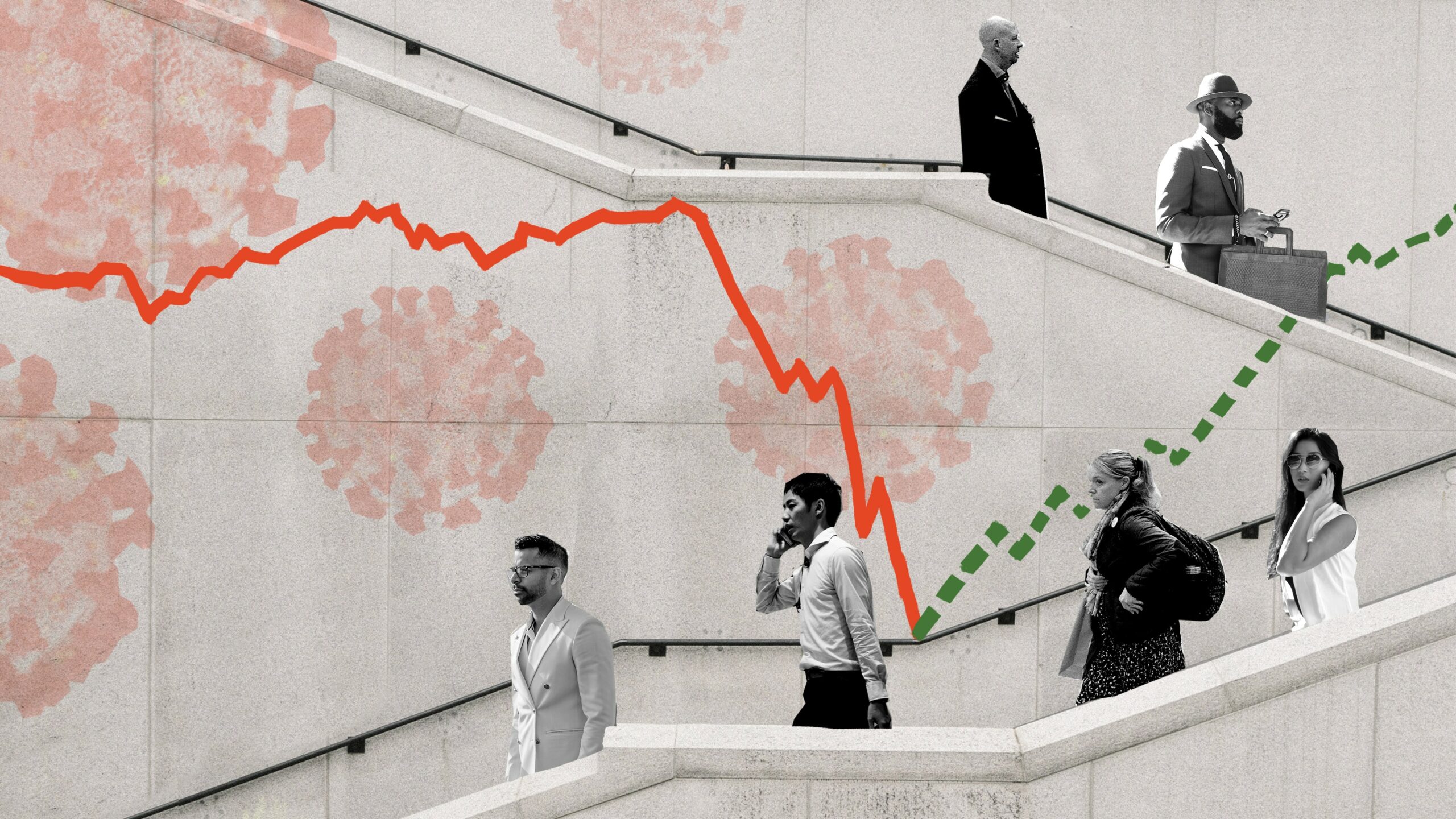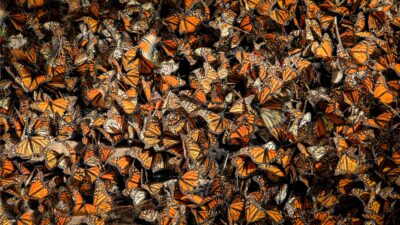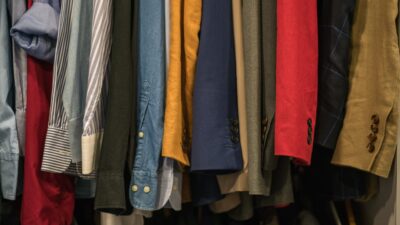Sandra Peter and Kai Riemer

Reorganised crime on Corona Business Insights
Crime is impacted just like other parts of the economy. We examine how organised crime reorganises in the face of the COVID-19 pandemic.
As COVID-19 sets out to change the world forever, join Sandra Peter and Kai Riemer as they think about what’s to come in the future of business.
Shownotes
How crime changes during lockdown
Organised crime during COVID-19
Sharp falls in UK crime rates during pandemic
In US and South Africa violence has gone down
Assault by coughing or spiting
Pandemic forced organised crime to find new business models
Mexican cartels see new opportunities through COVID-19
This episode is part of a podcast series covering what COVID-19 will mean for the business world, where we look at the impact on the economy, businesses, industries, workers and society. This is part of our ongoing coverage of the impact of COVID-19 on the future of business.
Follow the show on Apple Podcasts, Spotify, Overcast, Google Podcasts, Pocket Casts or wherever you get your podcasts. You can follow Sydney Business Insights on Flipboard, LinkedIn, Twitter and WeChat to keep updated with our latest insights.
Send us your news ideas to sbi@sydney.edu.au.
Dr Sandra Peter is the Director of Sydney Executive Plus and Associate Professor at the University of Sydney Business School. Her research and practice focuses on engaging with the future in productive ways, and the impact of emerging technologies on business and society.
Kai Riemer is Professor of Information Technology and Organisation, and Director of Sydney Executive Plus at the University of Sydney Business School. Kai's research interest is in Disruptive Technologies, Enterprise Social Media, Virtual Work, Collaborative Technologies and the Philosophy of Technology.
Share
We believe in open and honest access to knowledge. We use a Creative Commons Attribution NoDerivatives licence for our articles and podcasts, so you can republish them for free, online or in print.
Transcript
This transcript is the product of an artificial intelligence - human collaboration. Any mistakes are the human's fault. (Just saying. Accurately yours, AI)
Intro From the University of Sydney Business School, this is Sydney Business Insights.
Sandra And this is Corona Business Insights. I'm Sandra Peter.
Kai And I'm Kai Riemer.
Sandra And with everything that's happening, it's quite hard to understand what COVID-19 will mean for the business world. So in this series, we'll look at the economy, business, industry and government, workers and society.
Kai And crime, because today we're looking at how COVID-19 impacts on crime and how organised crime reorganises.
Sandra [So, the lockdown that we're experiencing around the world has changed not only the way we work, with many of us now working from home or the way we live, the way we interact. But it's also changing crime.
Kai The way we commit crime. Well, not you and I, Sandra, but people.
Sandra And there's a very interesting business angle to this, actually, because supply chains for crime syndicates are getting reorganised and there is a digital transformation going on. People are also working from home.
Kai While this might sound funny, crime is actually impacted, much like other parts of the economy, with the shutdown of global supply chains and less travel, the trafficking of both drugs and humans is severely disrupted, which is a good thing. But now organised crime has to find different ways to actually go about their business as well.
Sandra Indeed, so smuggling supply chains of any type of contraband are being disrupted with no planes up in the air, with no people travelling between countries.
Kai And so the Australian Strategic Policy Institute, for example, has put a dossier together which warns Australia that the way in which drugs enter the country is now changing. Traditionally, border forces would look out for large quantities of drugs entering the country, either in people's luggage or by boat. And so the institute warns that more and more drug cartels resort to what they call 'micro importations', that small amounts of drugs are now entering the country through the postal system, and that therefore a whole new approach to actually stopping this trade has to be put in place. It also talks about a power shift, because apparently Mexican drug cartels, which, believe it or not, are in charge of much of the worldwide drug trade, have their supply chains severely disrupted, whereas some of the Asian cartels, apparently because of the situation with COVID-19 is quite different or at a different stage in many Asian countries, are now in a position to gain market share.
Sandra Similarly, the fact that all professional and college sports have now completely stopped, it's impacting the money supply for many of the organised crime syndicates. For instance, La Cosa Nostra was getting much of their money supply through extensive gambling operations, that was one of their biggest money-makers that now has completely stopped.
Kai Drug trade is moving online. There's reports that in Bangkok, where much of drugs are usually traded on the streets, because of the lockdown, there's now underground online platforms where people can order drugs and there's now delivery services on motorbike, which will bring drugs to people's houses. So much like food delivery has moved online and to gig work deliveries, apparently the same is true for the drug trade.
Sandra Or, as is the case in the UK, drug dealers are using actually hi-vis equipment and selling drugs in supermarket carparks.
Kai So what you're saying is they're wearing hi-vis so people can find them and know where to get the drugs?
Sandra So that they blend in with the essential workers, and they're not seen by the police.
Kai By the way, the opposite problem is true now for much of police undercover operations. There's less people on the streets, there's less cars in the streets. So it actually disrupts the way in which typical undercover or surveillance work by the police forces is carried out as well. Because, you know, they can't blend in as easily. Maybe they should wear hi-vis as well.
Sandra And whilst in some cases the lockdown has been good news for the police, so, for instance, in the UK, in general crime has been down by 28 percent. That is car theft, it's very hard to steal people's cars from their driveways when people are at home. Burglary, robbery, unsurprisingly, shoplifting.
Kai Shoplifting has been down by 54 percent, given that shops are not open it's very hard to lift from them. The same is true with pickpocketing. If less pockets are out on the street, less picking can occur. So a lot has to do with the opportunity and the shifts in movements of people who are less out, they're more inside, there's less opportunities for crime to occur. But conversely, because of that, other types of crime have seen large increases.
Sandra While violence has gone down in places like US and South Africa, where the murder rate has dropped quite significantly, a lot of crime has moved indoors and we're seeing increases in domestic violence and abuse.
Kai And there is also, of course, more online fraud. With work moving to people's houses and a lot of work now occurring from domestic environments, this leaves the door open for more hacking attacks, for people breaking into corporate networks that now extend into people's houses. So there's a real surge in online-related crime, both fraud and hacking, stealing corporate data.
Sandra In the cyber-crime space there seem to be two broad categories of crime being committed. One that has to do with fraud, things like asking for money, for testing kits or vaccines or miracle-cures, or even blood from people who have overcome the disease, or asking people to invest in companies that are producing vaccines, or that are producing facemasks, that are producing hand sanitizer. The other class of crimes involves trying to install malware on people's computer, stealing their passwords, stealing their ideas, or just holding their networks or accounts hostage for ransom.
Kai So, what are your examples there point to, is that there's a whole class of new crime that is actually COVID-19 related, crime that didn't exist in this form before, or that is being elevated through the crisis. You already mentioned that there's fraud around miracle-cures and things like that. But there's also real problem with counterfeit testing kits circulating on the market that are being sold to countries that might potentially put lives at risks when tests are not reliable because they've been counterfeited on the cheap to make some money or counterfeit masks that look like real mass, but actually ineffective because the materials are not up to the standards. So these products are entering global supply chains.
Sandra And indeed, we're also seeing a whole new category of real life crimes being created by the COVID pandemic. And in Australia, we've seen coughing and spitting, prompting police to change the assault laws to ensure the safety of essential workers.
Kai So the category of a coughing assault or a spitting assault that is related to people pretending to actually trying to infect other people with the virus through those actions.
Sandra There is also now the fear that with increased financial assistance, assistance from governments around the world, there'll be increased claims fraud. We've seen this week alone in the US there are 30 million people unemployed who will ask for this assistance. Many others will take the opportunity to try to also obtain money from the government.
Kai Companies receive assistance to keep people employed in Australia. The job keeper scheme is currently being rolled out. There is now an incentive to commit fraud in the sense that people dress companies up in Vend employees and use the urgency with which this is being rolled out and the fact that not everything can be thoroughly checked and controlled, that they trying to obtain assistance and money in cases where this is not warranted.
Sandra But there is also the real problem of, in certain countries, such as Italy having millions of workers who are actually working off the books in what's been called the 'grey economy'. The same is happening in Mexico, and these people would not be covered for the loss of their income through the government aid schemes. Hence, they often feel they have no recourse but to commit fraud to try to access funds during the pandemic.
Kai Which brings me back to the Mexican armed cartels. Is an article in The Guardian, and it's been reported that even the cartels had to lay-off people and had to stop paying them their, you know, handouts, salaries if you wish, and that they are now changing their business model. As less money can be made from drug trade, they're resorting to kidnapping, to extortions. And in some regions in Mexico, it's been reported that cartels are actually trying to gain political capital from the local population by handing out aid packages with toilet paper and food, that they pay for from extortions from businesses in those same communities, or extortions from the government and politicians. So there is now a situation where these cartels become the protectors of the communities that they otherwise exploit.
Sandra So we'll keep an eye on how crime reorganise its itself, whether that's supply chain redesign, or pivoting business models, or digital transformation, new competitive advantages, or remote work.
Kai So we will see whether the hidden parts of the economy will embrace digital transformation and reorganisation, much like the economy in general.
Sandra And that's all we have time for today.
Kai We will, of course, put all the links and materials in the shownotes.
Sandra Until next time on Corona Business Insights.
Kai Thanks for listening.
Sandra Thanks for listening.
Outro From the University of Sydney Business School, this is Sydney Business Insights, the podcast that explores the future of business.
Close transcript







